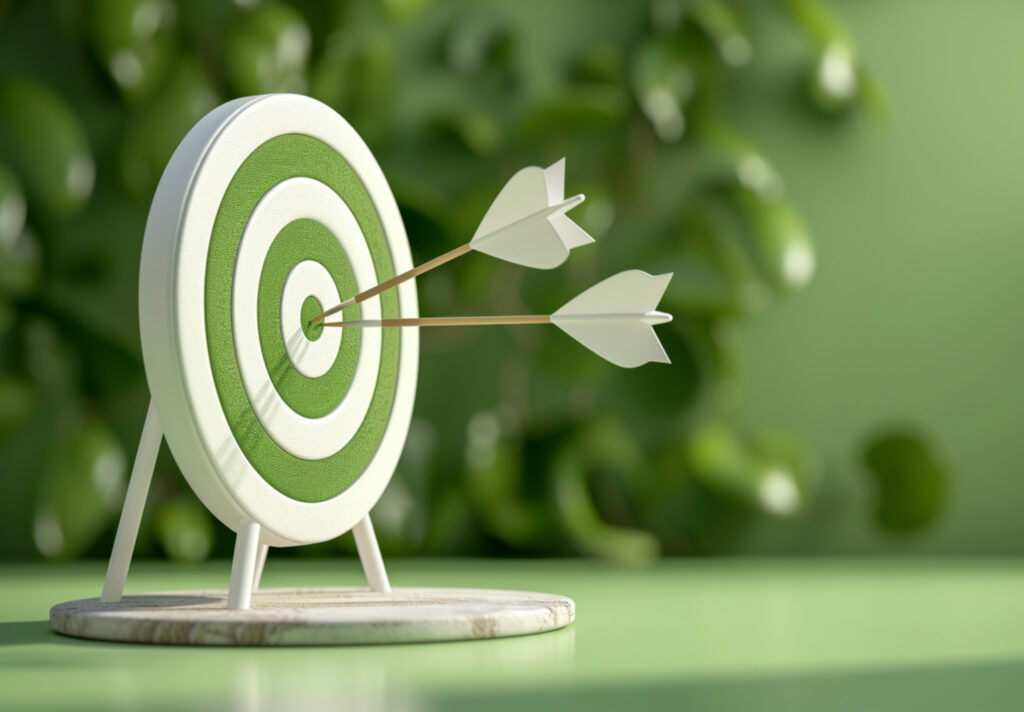Introduction to Focusing on Yourself
Why Focus on Yourself?
In today’s fast-paced world, it’s easy to get caught up in the demands and expectations of others. However, focusing on yourself is crucial for personal growth and overall well-being. When you focus on yourself, you prioritize your needs, goals, and happiness, leading to a more fulfilling and balanced life.
By taking the time to focus on yourself, you can identify your strengths and weaknesses, set meaningful goals, and work towards achieving them. This self-awareness and self-improvement journey ultimately enhances your relationships, career, and quality of life.
The Benefits of Self-Focus
Focusing on yourself offers numerous benefits, including increased self-confidence, improved mental health, and greater resilience. When you invest in your personal growth, you become better equipped to handle life’s challenges and seize opportunities.
Moreover, focusing on yourself allows you to cultivate a deeper sense of purpose and direction. It helps you align your actions with your values and passions, leading to a more authentic and satisfying life.
Setting Personal Goals
The Importance of Goal Setting
Setting personal goals is a fundamental aspect of focusing on yourself. Goals provide a clear direction and motivation, helping you stay focused on what truly matters. When you set specific, measurable, achievable, relevant, and time-bound (SMART) goals, you create a roadmap for personal growth.
Personal goals can range from improving your physical health to advancing your career or developing new skills. Whatever your aspirations, setting goals ensures that you have a clear path to follow and milestones to celebrate along the way.
Creating an Action Plan
Once you’ve set your personal goals, it’s essential to create an action plan to achieve them. Break down your goals into smaller, manageable tasks that you can tackle daily or weekly. This approach prevents you from feeling overwhelmed and helps you make consistent progress.
For example, if your goal is to learn a new language, your action plan might include daily vocabulary practice, weekly conversations with a language partner, and regular listening exercises. By consistently working on these tasks, you’ll build momentum and stay focused on your personal growth journey.
Developing Self-Awareness
Understanding Your Strengths and Weaknesses
Self-awareness is a crucial component of focusing on yourself. It involves understanding your strengths and weaknesses, as well as recognizing your emotions and behaviors. By developing self-awareness, you can make informed decisions and take actions that align with your true self.
Start by reflecting on your past experiences and identifying patterns in your thoughts, feelings, and actions. Consider seeking feedback from trusted friends or mentors to gain additional insights into your strengths and areas for improvement.
Practicing Mindfulness
Mindfulness is a powerful tool for enhancing self-awareness. It involves paying attention to the present moment without judgment, allowing you to observe your thoughts and emotions more clearly. Regular mindfulness practice can help you become more attuned to your inner experiences and make conscious choices.
Incorporate mindfulness into your daily routine through activities such as meditation, deep breathing exercises, or simply taking a few moments to pause and notice your surroundings. By practicing mindfulness, you’ll develop a deeper understanding of yourself and improve your ability to focus on your personal growth.
Building Self-Confidence
The Role of Self-Esteem
Self-confidence is essential for focusing on yourself and pursuing your goals. It stems from self-esteem, which is your overall sense of self-worth. Building self-esteem involves recognizing your value, appreciating your accomplishments, and treating yourself with kindness and respect.
Begin by celebrating your successes, no matter how small they may seem. Acknowledge your efforts and give yourself credit for your achievements. This practice boosts your self-esteem and reinforces a positive self-image.
Overcoming Self-Doubt
Self-doubt can be a significant barrier to focusing on yourself and achieving your goals. To overcome self-doubt, challenge negative thoughts and replace them with positive affirmations. Remind yourself of your strengths and past successes, and visualize yourself succeeding in your current endeavors.
Additionally, surround yourself with supportive people who encourage and believe in you. Their positive reinforcement can help counteract self-doubt and boost your confidence. By cultivating a supportive environment and practicing self-compassion, you can build the self-confidence needed to focus on yourself and achieve your goals.
Managing Stress and Anxiety
Identifying Stressors
Stress and anxiety can hinder your ability to focus on yourself and pursue personal growth. Identifying the sources of your stress is the first step towards managing it effectively. Common stressors include work pressures, relationship issues, financial concerns, and health problems.
Take some time to reflect on your stressors and how they impact your well-being. Consider keeping a stress journal to track your stress levels and identify patterns. This awareness will help you develop strategies to manage and reduce stress in your life.
Implementing Stress-Relief Techniques
There are various stress-relief techniques you can implement to manage stress and anxiety effectively. Physical activities such as exercise, yoga, and deep breathing exercises can help release tension and promote relaxation. Engaging in hobbies and activities you enjoy also provides a healthy outlet for stress.
Additionally, prioritize self-care by ensuring you get adequate sleep, maintain a balanced diet, and take regular breaks throughout the day. Practicing mindfulness and meditation can also help calm your mind and reduce anxiety. By incorporating these techniques into your routine, you can better manage stress and focus on your personal growth.
Cultivating Positive Relationships
Building a Supportive Network
Positive relationships play a crucial role in your ability to focus on yourself and achieve personal growth. Surrounding yourself with supportive and encouraging individuals can provide the motivation and inspiration you need to stay on track.
Identify the people in your life who uplift and support you, and make an effort to nurture these relationships. Spend quality time with them, share your goals and aspirations, and seek their advice and encouragement. A strong support network can help you stay focused on yourself and navigate challenges more effectively.
Setting Boundaries
Setting boundaries is essential for maintaining healthy relationships and focusing on yourself. Boundaries help you protect your time, energy, and well-being by clearly defining what you are willing and unwilling to accept.
Communicate your boundaries assertively and respectfully, and be consistent in enforcing them. This practice ensures that you prioritize your needs and avoid overcommitting or spreading yourself too thin. By setting boundaries, you create a supportive environment that allows you to focus on your personal growth.
Embracing Self-Care
The Importance of Self-Care
Self-care is a fundamental aspect of focusing on yourself. It involves taking intentional actions to nurture your physical, mental, and emotional well-being. By prioritizing self-care, you can recharge, reduce stress, and maintain a healthy balance in your life.
Self-care practices can include activities such as regular exercise, healthy eating, sufficient sleep, and engaging in hobbies and interests. It’s essential to make self-care a non-negotiable part of your routine, as it directly impacts your ability to focus on yourself and achieve personal growth.
Creating a Self-Care Routine
To create an effective self-care routine, start by identifying activities that bring you joy and relaxation. Schedule regular self-care time into your daily or weekly routine and treat it as a priority. This could be as simple as taking a walk in nature, enjoying a warm bath, or spending time with loved ones.
Additionally, practice self-compassion and avoid self-criticism. Acknowledge your efforts and progress, and be gentle with yourself during challenging times. By making self-care a consistent practice, you can enhance your well-being and stay focused on your personal growth journey.
Pursuing Hobbies and Interests
Exploring New Activities
Pursuing hobbies and interests is an excellent way to focus on yourself and nurture your passions. Engaging in activities you enjoy provides a sense of fulfillment and relaxation, which is essential for personal growth.
Take the time to explore new hobbies and interests that excite you. Whether it’s painting, gardening, playing a musical instrument, or learning a new language, trying new activities can spark creativity and bring joy to your life. This exploration helps you discover new talents and interests that contribute to your overall well-being.
Balancing Work and Leisure
Balancing work and leisure is crucial for maintaining focus on yourself. While pursuing your professional goals is important, it’s equally essential to make time for activities that bring you joy and relaxation. Striking this balance ensures that you avoid burnout and maintain a healthy, fulfilling life.
Set aside dedicated time for leisure activities in your schedule and treat it as a priority. This practice allows you to recharge, reduce stress, and stay motivated. By balancing work and leisure, you can focus on yourself and achieve personal growth while enjoying a well-rounded life.
Practicing Gratitude
The Power of Gratitude
Gratitude is a powerful practice that can enhance your focus on yourself and improve your overall well-being. By acknowledging and appreciating the positive aspects of your life, you can shift your mindset and cultivate a sense of contentment and happiness.
Start a gratitude journal and regularly write down things you are thankful for. This practice helps you focus on the positives and fosters a more optimistic outlook. Expressing gratitude also strengthens your relationships and promotes a greater sense of connection and appreciation.
Incorporating Gratitude into Daily Life
Incorporate gratitude into your daily life by taking moments throughout the day to reflect on what you are grateful for. This could be as simple as appreciating a beautiful sunrise, a kind gesture from a friend, or a personal accomplishment.
Share your gratitude with others by expressing your appreciation and acknowledging their contributions. By practicing gratitude regularly, you can cultivate a positive mindset and enhance your ability to focus on yourself and your personal growth.
Developing a Growth Mindset
Embracing Challenges
A growth mindset is the belief that your abilities and intelligence can be developed through dedication and hard work. Embracing this mindset is essential for focusing on yourself and achieving personal growth. When you view challenges as opportunities for learning and growth, you become more resilient and motivated to pursue your goals.
Adopt a growth mindset by reframing challenges and setbacks as valuable learning experiences. Embrace curiosity and be open to trying new approaches. This perspective helps you stay motivated and focused on your personal growth journey.
Seeking Continuous Improvement
Continuous improvement is a key aspect of a growth mindset. It involves consistently seeking ways to enhance your skills, knowledge, and abilities. By committing to lifelong learning and self-improvement, you can stay focused on yourself and achieve your full potential.
Set aside time for personal and professional development, whether through formal education, workshops, or self-study. Seek feedback from others and use it constructively to improve. By embracing continuous improvement, you can stay motivated and focused on your personal growth.
Managing Time Effectively
Prioritizing Tasks
Effective time management is crucial for focusing on yourself and achieving your goals. It involves prioritizing your tasks, setting deadlines, and avoiding procrastination. One popular time management technique is the Eisenhower Matrix, which categorizes tasks into four quadrants based on their urgency and importance.
Begin by identifying your most important and urgent tasks (Quadrant I) and tackle them first. Then, move on to tasks that are important but not urgent (Quadrant II), which often contribute to your long-term goals. Delegate or eliminate tasks that are not important (Quadrants III and IV) to free up time for more meaningful activities.
Using Time Management Tools
There are various time management tools and apps available that can help you manage your time more effectively. Tools like to-do lists, calendars, and project management software can keep you organized and on track. For example, apps like Trello, Asana, and Todoist allow you to create and prioritize tasks, set deadlines, and collaborate with others.
Experiment with different tools to find what works best for you. By leveraging these resources, you can streamline your workflow, reduce stress, and maintain focus on yourself and your personal growth.
Embracing Solitude
The Value of Alone Time
Embracing solitude is essential for focusing on yourself and gaining clarity. Alone time allows you to reflect, recharge, and connect with your inner self. It provides an opportunity to process your thoughts and emotions, which is crucial for personal growth.
Set aside regular time for solitude, whether through meditation, journaling, or simply enjoying a quiet walk. This practice helps you develop a deeper understanding of yourself and enhances your ability to make conscious choices.
Overcoming the Fear of Being Alone
Many people fear being alone because it can bring up uncomfortable emotions or feelings of loneliness. However, embracing solitude can be a powerful tool for personal growth. By facing and processing these emotions, you can gain a deeper understanding of yourself and build emotional resilience.
Practice self-compassion and remind yourself that alone time is a valuable opportunity for self-discovery. Gradually increase the amount of time you spend alone and explore activities that you enjoy. Over time, you’ll develop a greater appreciation for solitude and its benefits for your personal growth.
Conclusion: Embracing the Journey of Focusing on Yourself
The Rewards of Self-Focus
Focusing on yourself is a transformative journey that offers numerous rewards. By prioritizing your personal growth and well-being, you can achieve greater self-awareness, self-confidence, and fulfillment. This journey enhances your relationships, career, and overall quality of life.
Remember that focusing on yourself is not a selfish act but a necessary one for personal development. By investing in yourself, you can better serve and support others, creating a positive ripple effect in your life and the lives of those around you.
Your Path to Personal Growth
As you embark on your journey to focus on yourself, stay committed to your goals and embrace the process of growth and self-discovery. Celebrate your progress, learn from your setbacks, and continue striving for excellence.
By incorporating the habits and strategies discussed in this blog post, you can cultivate a focused mindset and build a life of meaning, purpose, and achievement. Start today, and take the first step towards a more focused and fulfilling future.





